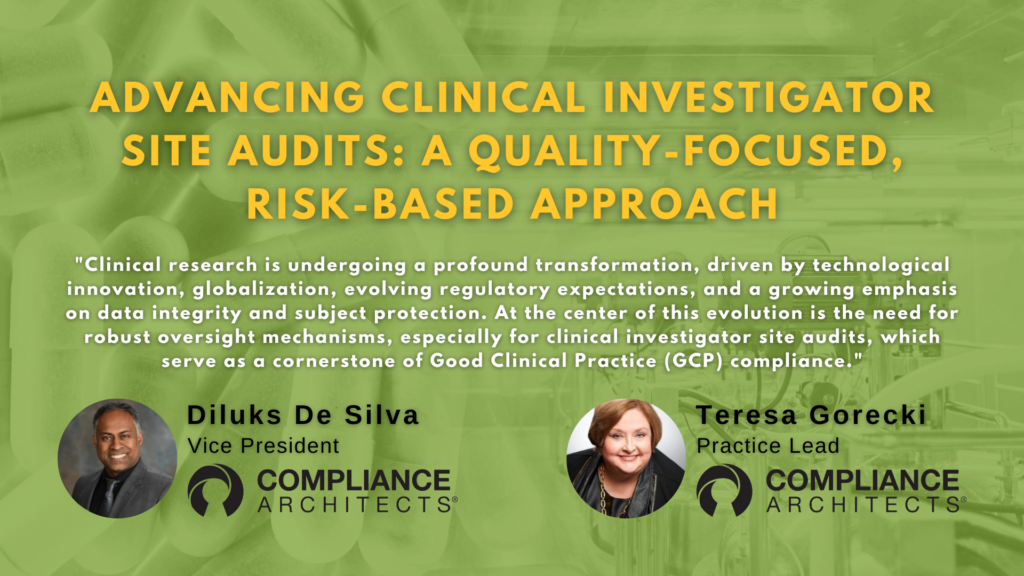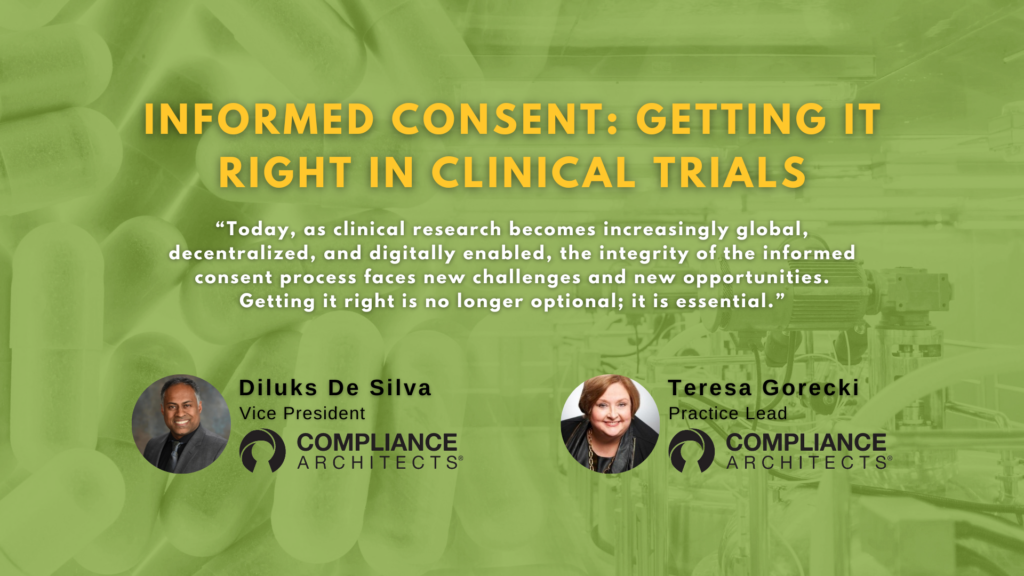Savvy companies understand that Quality Assurance (QA) must be seamlessly integrated into the clinical development process rather than being an afterthought confined to audits and quality control (QC) checks. But how can this integration be effectively accomplished? In this article I will discuss ICH Guidelines and how o integrate QA in clinical trials.

Table of Contents
The Shift in Responsibilities
A review of international guidelines and industry practices reveals a slight shift in responsibilities within clinical trials. While few new responsibilities have been added, many traditional tasks have been reassigned. For example, some activities traditionally performed by the trial manager are now more appropriately assigned to the Good Clinical Practice (GCP) QA system.
Understanding these nuances is crucial for compliance, especially for new medical product sponsors. Inadequate sponsor oversight to ensure data integrity during trials and failure to adhere to investigational plans are among the top reasons for FDA Bioresearch Monitoring (BIMO) Form 483 observations. An integrated approach to QA and GCP is essential for avoiding these observations during FDA inspections.
Evolution of QA in Clinical Trials
Industry presentations from the UK, US, Canada, and Australia highlight evolving expectations in the division of responsibilities. Historically, Quality Assurance was seen as a separate auditing entity. Today, the mindset is shifting towards “quality as culture,” where quality and compliance are integral parts of the entire clinical development process.
David Fryrear, formerly Senior Director at Abbvie, emphasized that embracing Quality Management System (QMS) elements—such as corrective and preventative action (CAPA) and change management—is now essential. High-profile regulatory actions and product rejections have underscored the importance of these practices.
Key Responsibilities of the GCP QA Unit
The GCP QA unit now handles many tasks previously assigned to trial managers, including:
- Reviewing clinical trial protocols and risk management plans
- Ensuring informed consent forms and trial protocols are user-friendly
- Creating and maintaining unique risk management plans for each trial
- Reviewing monitoring reports of site visits
- Reporting key GCP quality and compliance metrics
- Escalating critical quality and compliance issues
- Periodically reviewing the Trial Master File (TMF) to ensure data integrity
Responsibilities Retained by Trial Managers
While GCP QA units now manage many new responsibilities, trial managers and clinical operations still handle quality-related tasks, primarily focused on QC activities such as monitoring, data source verification, and CAPA activities.
Importance of the ICH Guideline
Effective implementation of a GCP QA plan must be grounded in a thorough understanding of regulatory requirements and industry standards. Additionally, keeping up with current industry standards and best practices is necessary for companies that want to stay at the forefront of the new product development pack. Since the FDA established the BIMO program to monitor clinical trials, guidelines have evolved, culminating in the International Conference on Harmonization (ICH) Guideline for Good Clinical Practice (E6).
The ICH E6 guideline clearly states that sponsors cannot delegate QA/QC responsibility entirely to CROs. Sponsors must maintain their own QA/QC systems, even when outsourcing clinical trial operations.
Embracing a Risk-Based Approach
Revision 2 of the ICH E6 guideline emphasizes a risk-based approach to quality management throughout all trial stages. This approach includes:
- Identifying and controlling critical processes and data
- Evaluating and managing risks
- Documenting risk management plans
Sponsors should place a focus on essential trial activities that ensure human subject protection and data reliability. The quality management system should avoid unnecessary complexity and be proportionate to the risks involved.
Conclusion
Integrating QA into the clinical development process is not just about compliance—it’s about fostering a culture of quality. By understanding and implementing international guidelines and industry best practices, sponsors can ensure the integrity of their clinical trials and avoid costly regulatory observations.
For more information on integrating QA into your clinical trials, please fill out our contact form.





